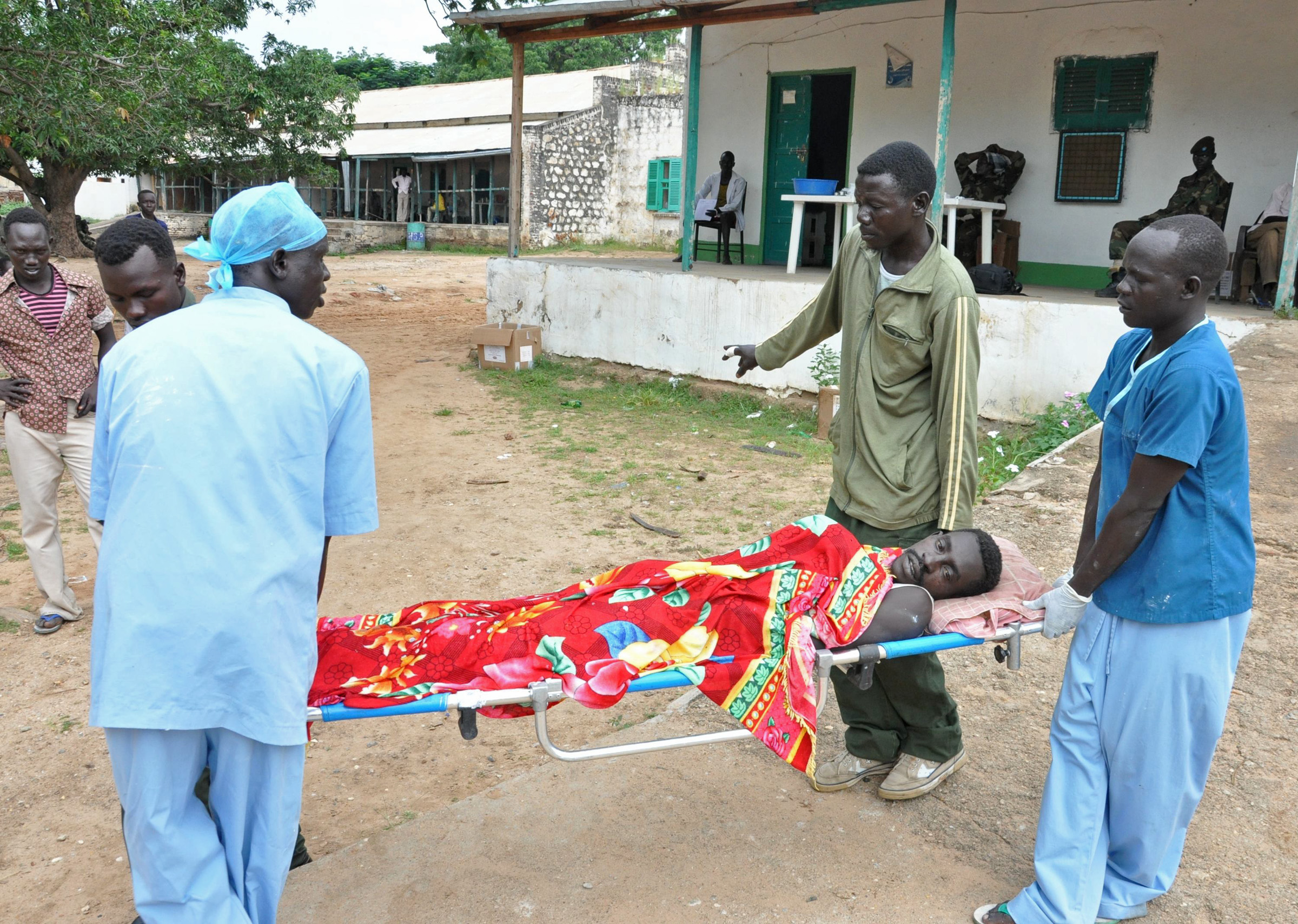So far he has treated 626 people for shrapnel injuries since clashes began last month between the Sudan Armed Forces (SAF) and the Sudan People's Liberation Movement-North (SPLM-N) opposition political party-turned-rebel group.
A man on the operating table cries out in pain, but Atar says the hospital has no more anaesthetics to give him.
Cotton, gauze and saline solution will run out this week if aid does not arrive, he says, adding that six months of supplies have been used up in the past six weeks.
“We are running short of everything - drugs, dressings.” He feared the hospital would have to buy salt, boil it, and use it to sterilize wounds.
"The problem is that there is no way we can get the drugs in here now because of the Antonovs bombing the area, making it very dangerous to fly supplies in from Kenya."
Sudan’s President Omar al-Bashir will not allow foreign aid agencies inside Blue Nile or the neighbouring state of South Kordofan, where the government has been fighting SPLM-N forces for months.
The only doctor in Kumruk
Atar is the only doctor in Kurmuk, which has the only hospital between state capital Damazin (under SAF control), and neighbouring Ethiopia.
Nurse Walid Solomon says 20-year-old soldier Satdam Anima is the seventh amputee victim the hospital has dealt with. He was hit by “the big bullet of the Antonov”. Atar, with Solomon’s assistance, sews up the stump near the left shoulder, and Satdam’s eyes roll in pain.
|
Photo: Hannah McNeish/IRIN |
| Dr Evan Atar is the only doctor at Kurmuk hospital |
“In the first war, there was peace in the villages; now they [the Antonovs] bomb even the villages - that’s the problem; and the increasing accuracy of the bombing is leading to rising patient numbers as the weeks go by," Atar said.
The hospital has only one ambulance and most vehicles are useless on the muddy roads. Many of the injured arrive at the hospital by donkey, often too late.
In a ward bed, Altom Osman, 65, is recovering from a deep shrapnel wound to his back and another on his arm when a bomb from an Antonov landed on his mud-and-thatch hut in the village of Sali, north of Kurmuk.
“I was on my farm when the Antonov came. I couldn’t escape," Osman said. He was carrying sorghum flour to his wife.
He managed to flag down a passing soldiers’ vehicle and get to the hospital quickly, and despite his fragile appearance “and very huge wound”, Atar is confident he will make a full recovery.
Further north of Kurmuk in Maiyas, village chief Khidir Abusita pointed to a crater and shrapnel near two huts where six people were killed. He said one man, Sebit Ahmed Hussein, had reached the hospital in time to get treatment, but another, whose “leg was blown apart”, bled to death on the way.
No safe haven
The priority is to move patients from the hospital as quickly as possible, either back home or across the border to Ethiopia where other aid agencies can care for them.
“The fear that an Antonov might bomb [the hospital] is terrible”, Atar said, adding: “Most of the people who were injured are people who were running. The bomb usually explodes upwards in a conical form, so if you keep down you are fine."
Food would also become a problem, he noted. “First of all the war will continue and the second thing is, now, hunger will come and it is not going to spare anyone unless the people go and become refugees to be helped, but for the people left within, it is going to be a big problem.”
Artillery fire directed at rebels could be the last straw. “For now it is the Antonov bombing, but I don’t think I would be here if there is shelling… and no patients could be brought here,” Atar said.
hm/js/cb
This article was produced by IRIN News while it was part of the United Nations Office for the Coordination of Humanitarian Affairs. Please send queries on copyright or liability to the UN. For more information: https://shop.un.org/rights-permissions





